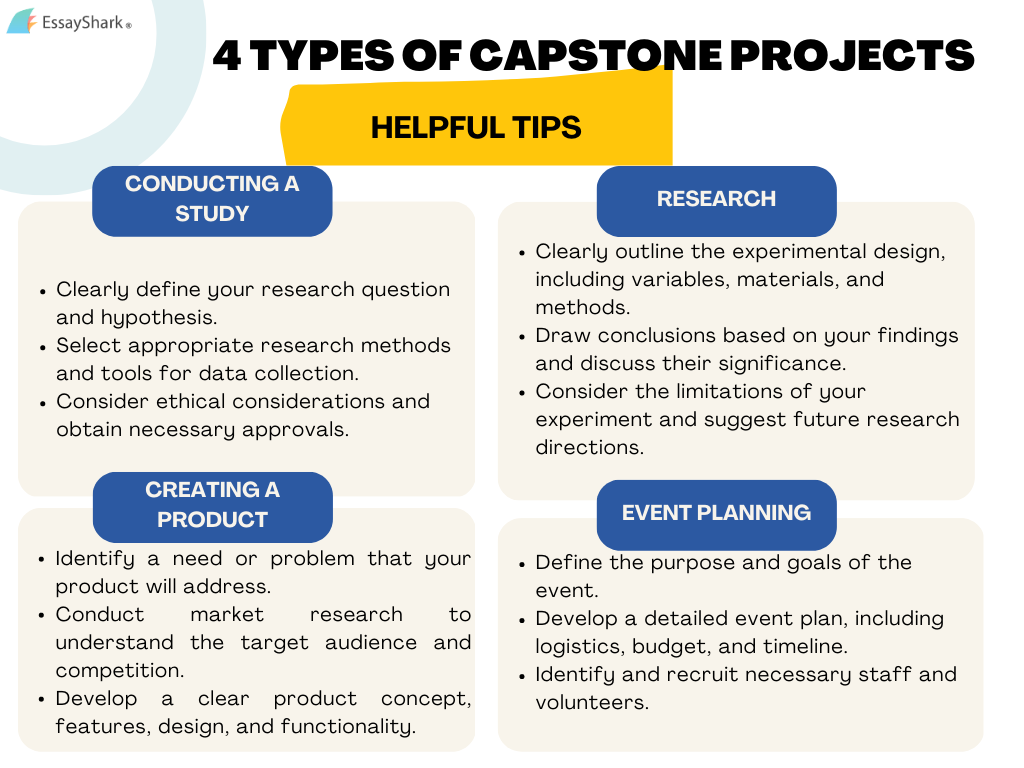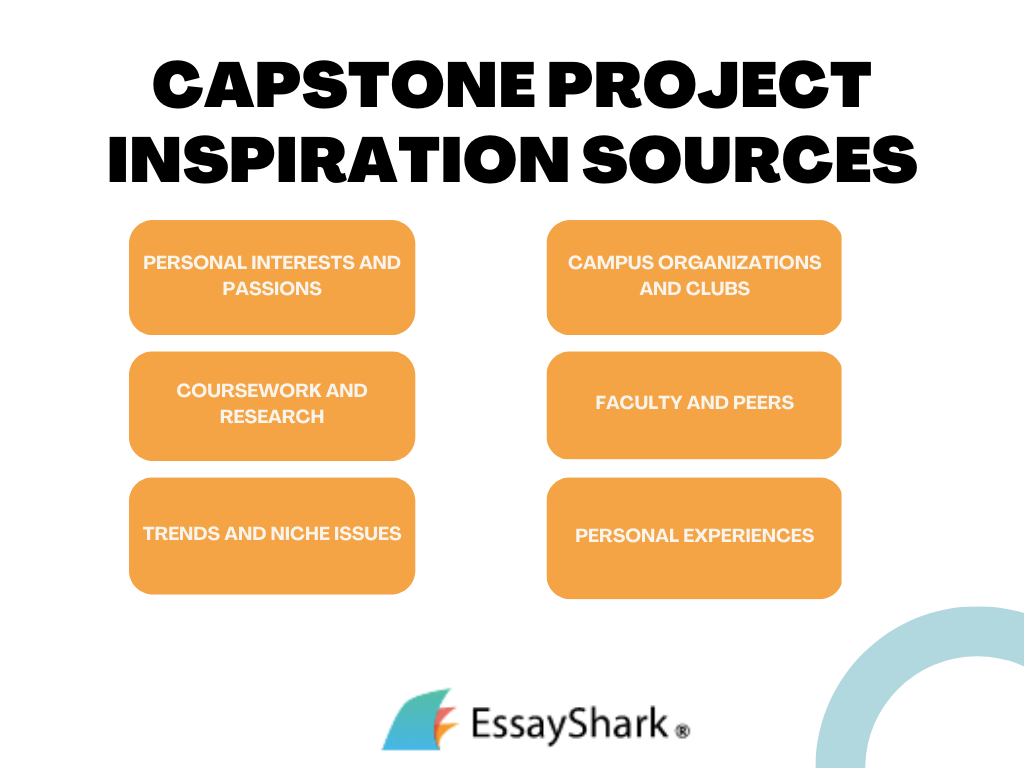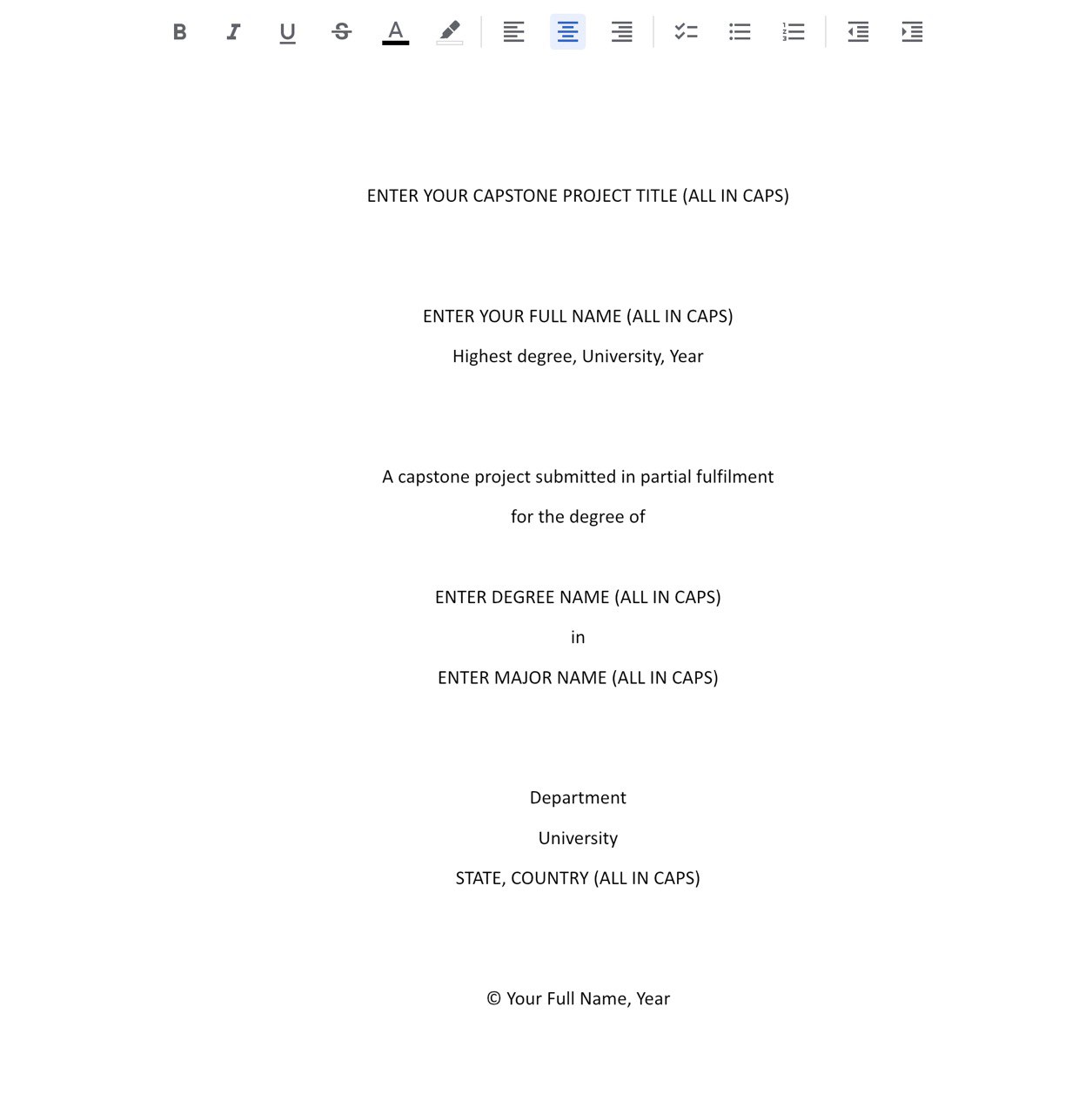A capstone project’s meaning remains a secret for first-year students, let alone the general public. Don’t you think that it’s the right moment to clear some things up?
- What is a capstone project in general?
- What are common types of capstone projects?
- How can you deal with the written part of your capstone project?
We’ll give you clear and comprehensive answers to all basic questions about writing capstone projects. If you can’t find everything you want to know about a capstone project, you’re welcome to leave your questions in the comments. We’ll be glad to help you out! And if you’re exploring ideas for related assignments, don’t miss our list of art essay topics to spark your creativity.
Table of contents
- What is a capstone project?
- Four types of capstone projects
- Tips for finding a good capstone project topic
- How to deal with the written part of your capstone project
- Capstone project format
- Capstone project checklist
- Mistakes to avoid while writing a capstone project
- Capstone project writing assistance from experts
What is a capstone project?
In The Glossary of Educational Reform, you can find this capstone project definition:
A capstone project is a multifaceted assignment that serves as a culminating academic and intellectual experience for students, typically during their final year of high school or middle school, or at the end of an academic program or learning-pathway experience.
Capstone projects are not usual types of assignments; they differ a lot from regular research papers, and even dissertations. These projects allow you to apply your knowledge and theoretical skills in practice. Capstone projects are a perfect method to find out whether you’re ready to dedicate your life to a specific field of work. If you’re working on similar academic tasks, be sure to check out our guide on How to Write a Coursework for more helpful tips.
As a rule, your work on the capstone project consists of two parts: a long-term investigation, and a presentation. You can present your project in the form of a report, infographics, performance, short film, etc.
The aim of capstone projects is to demonstrate gained theoretical and practical skills and level of knowledge to prove to the instructor that the student has mastered the academic program. Your instructor can be good assistance during the writing process, so do not hesitate to ask questions if necessary.
Four types of capstone projects
A capstone project has an endless range of opportunities. You finally have a chance to make something you’re extremely interested in and get professional feedback about your work. Let’s see what options you have:
- Conducting a study
Every type of academic paper requires study. But for a capstone project, it has to be very special. You should choose a topic that you’re really interested in, as your work on the project might take a while. We bet you don’t want to spend hours while investigating a subject you feel sick about.
- Doing an experiment
No matter what experiment you pick – social, scientific, psychological – it’ll be a great basis for your capstone project. Make sure to document all the details carefully so that other researchers would be able to repeat your experiment.
- Creating a product
Creating something new is always exciting. If you have always dreamed about your own online magazine, delivery service, or educational website, give it a try! Besides, after a presentation, you’ll have the opportunity to turn your capstone project into something bigger.
- Event planning
If you feel passionate about festivals, concerts, and charity fairs, event planning is the best choice for your capstone project. We feel that you’ll rock it with our tips!

So many options! Don’t hesitate – create your capstone project plan, and go for it! If you have one more minute, read our guide about the written part of your capstone project.
Tips for finding a good capstone project topic
Before you start the capstone project, you should know that the specifics may vary from one course to another. To find the topic for your project, you need to define the topic area, briefly research existing information, and come up with the issue you want to explore. Make a list of the issues you feel are the most suitable.
Here are general recommendations to decide whether your capstone project idea is good. A good topic for a capstone project should follow these points:
- Your capstone project idea should be of your interest. A genuine interest will help you write a successful work.
- Your capstone project should have a clear objective. You must discuss the desired goal if you have a sponsor or client.
- The goal of the project is reached in the defined time frame. You need to estimate the time you need to complete the task to meet the deadline.
- Your sponsor or advisor agrees on the project idea. Some of the capstone projects will need to be carried out with financial support for their success, so your sponsor should accept your capstone project idea.
- The project has foreseen outcomes. It may be a program, plan, presentation, design, system, or anything that can be presented as the end product to the sponsor or client.
- The project should be based on a real problem, issue, or opportunity.
All of the listed above criteria are essential. So make sure your topic follows each point.
How to deal with the written part of your capstone project
To write a paper of this type, you should carry out thoughtful and thorough research and have a solid bundle of knowledge in the variety of topics you are going to write about for your project. For inspiration or to sharpen your argumentation skills, check out our list of debate topics for adults. Graduate projects are extensive and require long months of tough work. If you are going to continue your academic career in the future, completing a capstone project is a must for you. The capstone project’s meaning for your academic future is huge, so don’t miss your chance.
1. Choose a topic you like and are interested in.
This point really matters, as you will hate an uninteresting topic by the end of the writing process, and it will be difficult for you to generate good ideas. If you get stuck while writing about your topic, use brainstorming techniques to get out of the crisis of writer’s block. Here are some sources for inspiration.

2. Do your research.
Students are engaged in capstone projects for a semester or two. You will never regret getting ahead, looking for needed information, and taking notes. Read all the available resources attentively, underline at once all the needed facts, and write down your own ideas while reading. Do not put copied citations out of sight. Pay special attention to the references in articles – they will provide lots of additional information.
3. Create a proposal
If you’re pursuing a capstone project as part of your academic or professional journey, one of the first steps is to create a proposal outlining your project idea and objectives. This document serves as a roadmap for your project and helps you communicate your vision to others, such as advisors, instructors, and potential stakeholders.
4. Write your thesis statement.
A thesis statement establishes the structure of the whole paper. A capstone project’s thesis statement should be concise, logical, and a bit controversial. Make sure you can prove your main idea to be true or at least viable. Check out the opposite points of view and the debates around them to know how to build your arguments.
5. Create an outline.
What is a capstone project outline? It is a logical order of ideas and questions you are going to speak about in your paper. They should be coherent and support the main idea of your paper.
6. Stay organized while writing capstone projects.
Come up with a general system which will help you in writing: save bookmarks in your browser, highlight specific points to consider, and use color labels for ideas of different degrees of importance.
7. Make the first draft.
Don’t try to make it perfect on the first try. Such perfectionism will take much time but won’t be effective. If you do everything right, you’ll have time to polish your writing later.
8. Stick to the appropriate formatting style.
Proper formatting will influence your general grade, so you should be attentive. Use formatting style guides to get a better grade.
9. Proofread your paper several times.
This is the last stage of the working process. Get rid of punctuation and grammar mistakes so that they won’t spoil the overall impression. If you have the opportunity to get feedback about your capstone project before submitting, don’t neglect the chance to look at your writing through the eyes of another person. A fresh perspective never hurts. And if you’re working on personal narratives too, take a look at our guide on how to write an autobiography for more writing tips.
Capstone project format
While a capstone project may take various formats, if you need to write an academic paper, follow the typical format:
Title page. Organized within the college requirements. Typically contains the project’s title, your full name, department, university’s name, city, and year of submission. You can use the sample title page you can see below.

Abstract. It’s a summary of the main points of your project research. Explain why you have chosen the topic and which goals you planned to achieve. Describe methods and a short conclusion of the project outcome.
Table of contents. Make a list with the titles of the paper’s sections, followed by numbers.
Introduction. Apart from the abstract, you shouldn’t discuss the project’s outcomes here. It’s a presentation of the topic, goals you planned to reach during research, and methods you have used.
Literature review. Simply put, it’s a summary of your findings on the topic related to your project. Besides, note whether you have found knowledge gaps during your exploration of the main topic and include quotes if necessary.
Methods. Explain how you have gathered the data and why chosen methods were the best option. Discuss issues that came up during the research and how you analyzed the data.
Results and findings. In this section, you need to describe which data you have discovered. You will need to explain the numbers and information in words accompanied by graphics and charts. State how the numbers are connected to various issues of the project.
Conclusion. Explain how your research is related to the study’s stated goals and make recommendations for future applications.
Bibliography/ references. Format the citations list according to the required format (APA, MLA, Harvard, etc.)
Appendices. Attach tables, graphs and other information that needs more coverage and space in your paper. Not sure what belongs there? Read our guide on what is an appendix in a paper to understand how to organize and format this section properly.
Capstone project checklist
Follow the list to ensure you have done everything to make your capstone project shine.
- Brainstorm the prospective ideas for the project.
- Make up a list of questions you plan to address. List more than one question.
- Define the final deliverable you aim to come up with at the end of your project (report, portfolio, composition, document, video, etc.)
- Create a schedule for the project. Take care of time frameworks and list the actions you need to complete the project.
- Write a project proposal where you brightly present the idea of your capstone project.
- Submit the proposal before the due date.
- Control the work progress and ensure the project progresses within the plan.
- Send weekly status if the supervisor/moderator requires to do so.
- Analyze the outcomes of the project.
- Create a capstone project report and PowerPoint presentation if needed. Proofread the text and edit.
- Submit the final project to your supervisor. Make all required changes and revisions.
- Present your project to the defined audience (committee/ client/ sponsor).
Mistakes to avoid while writing a capstone project
Here are the most typical mistakes students make while writing their capstone projects.
– Poor prioritizing. It’s essential to set the highest priority to your capstone project. Make a timeline and stick to it to work the paper parts qualitatively.
– Lack of attention to the main points. Without a proper focus, the project loses its primary purpose. Make sure your paper corresponds to the main point you stated at the very beginning of your project.
– Failing to set specific criteria for the project completion. Reusing the material from your previous works is not a good idea. Your project should reflect your critical thinking skills, planning and realization of a particular project.
– Falling to gather appropriate data. Take care to collect the information on the topic systematically and store it so you can easily access it during writing.
– Weak teamwork. Some capstone projects involve working in a team, so each participant should attend regular meetings and devote significant time working together on the project outside the class.
– Lack of professionalism. A real professional sticks to details. So you should be sure that your report has the proper format, mistakes-free text, and remains well-edited before the submission.
– Insufficient preparation before the presentation. Sometimes, it’s not enough just to recite the main point of the presentation. You must think about effectively delivering your project to a prospective audience. Think about the idea of creating a presentation to support your thoughts.
Capstone project writing assistance from experts
Capstone projects are time-consuming and complicated papers to accomplish, so make sure you start writing them in advance to leave the last month of studies for yourself. Give yourself some time and space to acknowledge that studies will be over soon, and you will move on to a new life. If you feel uncertain about managing a capstone project on your own, visit EssayShark.com to get the help of a professional paper writing service. We assist students in various types of written assignments to make their studies easier. Just specify your requirements and instructions and get your paper written according to your instructor’s requirements.








